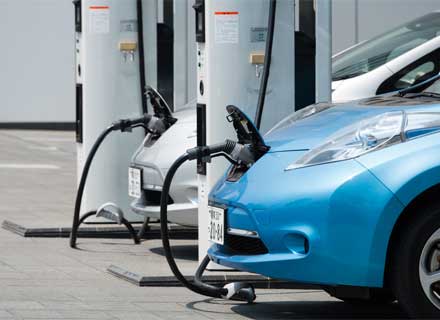Due to supportive government regulations and the entry of new players into the market with budget-friendly options, India is expected to have a wide range of electric vehicles in the next two to three years.
According to industry experts, the percentage of electric vehicles (EVs) in passenger cars will increase from 1.3% in 2022 to over 21% by 2027.
MG Motor, Hyundai Motor, and Tata Motors are India’s market leaders for electric vehicles (EVs).
According to Soumen Mandal, senior analyst of Counterpoint Research, the recent introduction of MG Motor’s Comet EV, which costs less than Rs 10 lakh, will revolutionize the uptake of electric vehicles in Indian cities.
230 km is the certified battery range the Comet EV gives on a single charge. The company has assessed the new Comet EV to offer a reasonable and affordable monthly charge of Rs 519.
Before releasing pure EV cars, Maruti Suzuki is also focusing on creating its battery technology.
Tata Motors has already built a functioning battery plant, which has assisted the business in lowering the price of its EVs.
The Indian electric vehicle market is expanding quickly, according to CyberMedia Research (CMR), with an annual growth rate of almost 48% in the first quarter of 2023.
Market growth for electric two-wheelers (E2W) was at 44% yearly. On the other hand, the market for electric three-wheelers (E3W) expanded gradually, taking up around 50% of the segment.
Consumer awareness of linked vehicle technologies is rising. For instance, according to John Martin, senior analyst for CMR’s smart mobility practice, connected vehicle technology has steadily expanded its market share.
In India, the first quarter saw more than 114% YoY growth in the electric passenger vehicle (EPV) market.
The EV market share in India is anticipated to rise above 24% by Q1 2025.
In its research, Moody’s Investors Service stated in April 2023 that various government incentives would accelerate EV penetration.
Consumer incentives, production-linked incentives for advanced battery storage to support local cell manufacturing, rate reductions for the goods and services tax (GST), and other state-level subsidies are among them, according to the research.
Electric vehicles will be essential in India’s transition to a sustainable future due to the desire for reasonably priced transportation and the focus on lowering carbon emissions.
According to the most recent RedSeer survey, consumers choose electric vehicles (EVs) more frequently because they realize they have a lower total cost of ownership (TCO) than their petrol-powered counterparts—over 50% for heavy usage like deliveries.
The analysis observed that even while India’s electrification of transportation is still in its infancy, “there is huge headroom for expansion” as of 2022, when the country’s entire EV penetration, including 2W, is at 3%.

